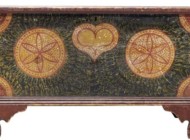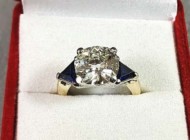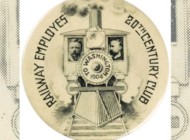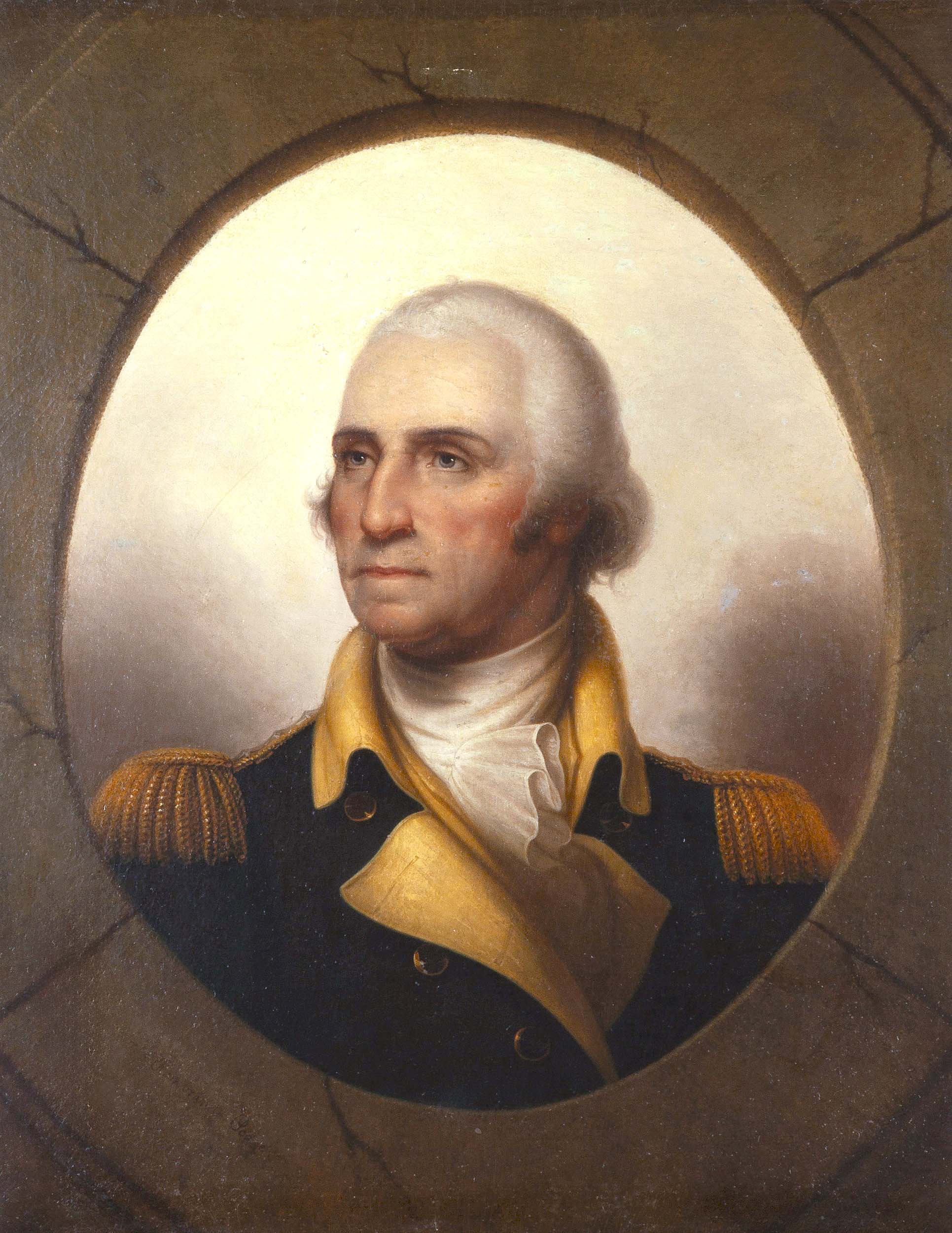
The highest lot of the auction, making $492,000, was a portrait of George Washington by Rembrandt Peale (American, 1778-1860), circa 1846, oil on canvas, 36 by 30 inches framed ($200/400,000).
Review by Carly Timpson
GENESEO, N.Y. — On September 20-21, Cottone Auctions presented 320 lots of fine art and antiques coming from the Plantation, Fla., collection of Dr Martin May, an orthopedic physician, businessman, author and collector, as well as other various estates, museums and individual collections. The sale boasted a 98 percent sell-through rate and realized $3.7 million.
As estimates predicted, the sale’s top lot — achieving $492,000 — was a circa 1846 portrait of George Washington done by Rembrandt Peale. The work was purchased by Giles F. Ward (1812-1885) from the artist in February of 1845. From there, the work had provenance to Lucy Bell Ward (1847-1926); a “Mrs Sully,” whose husband, the catalog notes, was a grandson of the artist Thomas Sully; M. Knoedler & Company, N.Y.; Colonel Charles Clifton (1853-1928); Alice (Clifton) Strachan; thence by descent. Included in the lot were documents from 1926 — an invoice and correspondence — from M. Knoedler & Company, New York, to Colonel Charles Clifton of the Buffalo, N.Y., Pierce-Arrow Motor Car Co. In one of these letters, the painting is identified as “Port-Hole Washington,” referring to the trompe-l’œil stone masonry “window” painted around Washington’s portrait.
Two paintings by American artist Jane Peterson were bid well past their $80,000 high estimates. Making $210,000 was “A Pier At Gloucester,” an oil on canvas depiction of a few small boats, possibly a working fishing boat and its rowboat, at a pier. The other work was similarly a Gloucester scene, though that one was horizontal and showed more boats at rest; it went out at $156,000. Both works were signed to the lower left and were likely shown at The Memorial Art Gallery’s (Rochester, N.Y.) February 1917 exhibition “An Exhibition of Paintings by Jane Peterson, Frank Townsend Hutchens and Other Contemporary American Artists.” They were purchased from the artist by Willis O. Chapin (Buffalo, N.Y.) in 1912, then acquired by William F. Chapin (Buffalo, N.Y.), then by Alma (Chapin) Owen-Strachan, thence by descent.
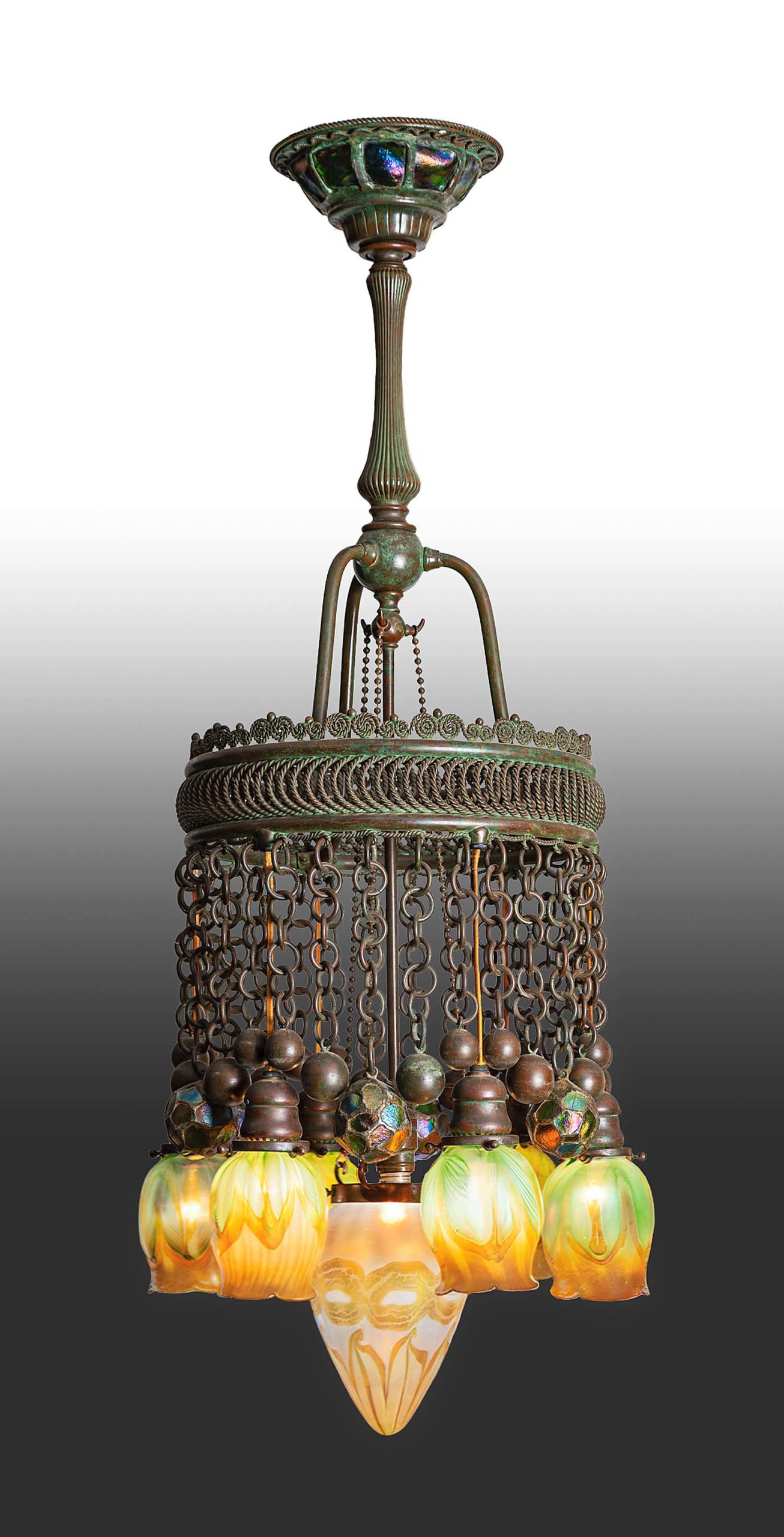
This 42-inch-long Moorish seven-light chandelier by Tiffany Studios, circa 1905, Favrile glass and patinated bronze, had turtleback accents and brought $156,000 ($75/125,000).
A significant percentage of the top-achieving lots in the sale were artistic lighting pieces, many of which were made by notable companies including Tiffany Studios, Duffner & Kimberly and Handel. Leading the category at $156,000 was a seven-light chandelier by Tiffany Studios. Designed in a Moorish style, the circa 1905 light featured six pulled feather Favrile glass shades surrounding a central decorated stalactite. All seven of the Favrile pieces were signed “L.C.T.” The bronze chandelier was further accented by Tiffany’s iconic turtleback glass tiles, embedded into suspended bronze orbs and encircling the ceiling mount. The chandelier came to auction from its original home near Lake Forest, Ill., which was designed by architect David Adler (1882-1949).
Other Tiffany Studios lights included several leaded glass mosaic table lamps. Making $105,000 was a Peony lamp that came from a New England family’s collection. The circa 1910 lamp was on a bronze library-style base impressed “Tiffany Studios New York 359 S173.” Descending through the family of George Hamm (Chippewa Falls, Wis.), who acquired it in the 1940s, was a Clematis lamp. This example was on a bronze Lion’s Claw base numbered “3230 481,” and it sold for $96,000. A Daffodil lamp, once belonging to an important American collection, was on a bronze Old English style table base, number 557; it went out $51,600.
Each of these lamps, as well as a 12-light Favrile glass Lily lamp on a bronze Lily Pad base, were illustrated in Alastair Duncan’s Tiffany Lamps and Metalware (Woodbridge: Suffolk: Antique Collectors’ Club, 1988). As noted by the auction catalog, the Lily lamp, which brought $52,800, was complete with all 12 original Tiffany shades “with unusual onion skin texture.”
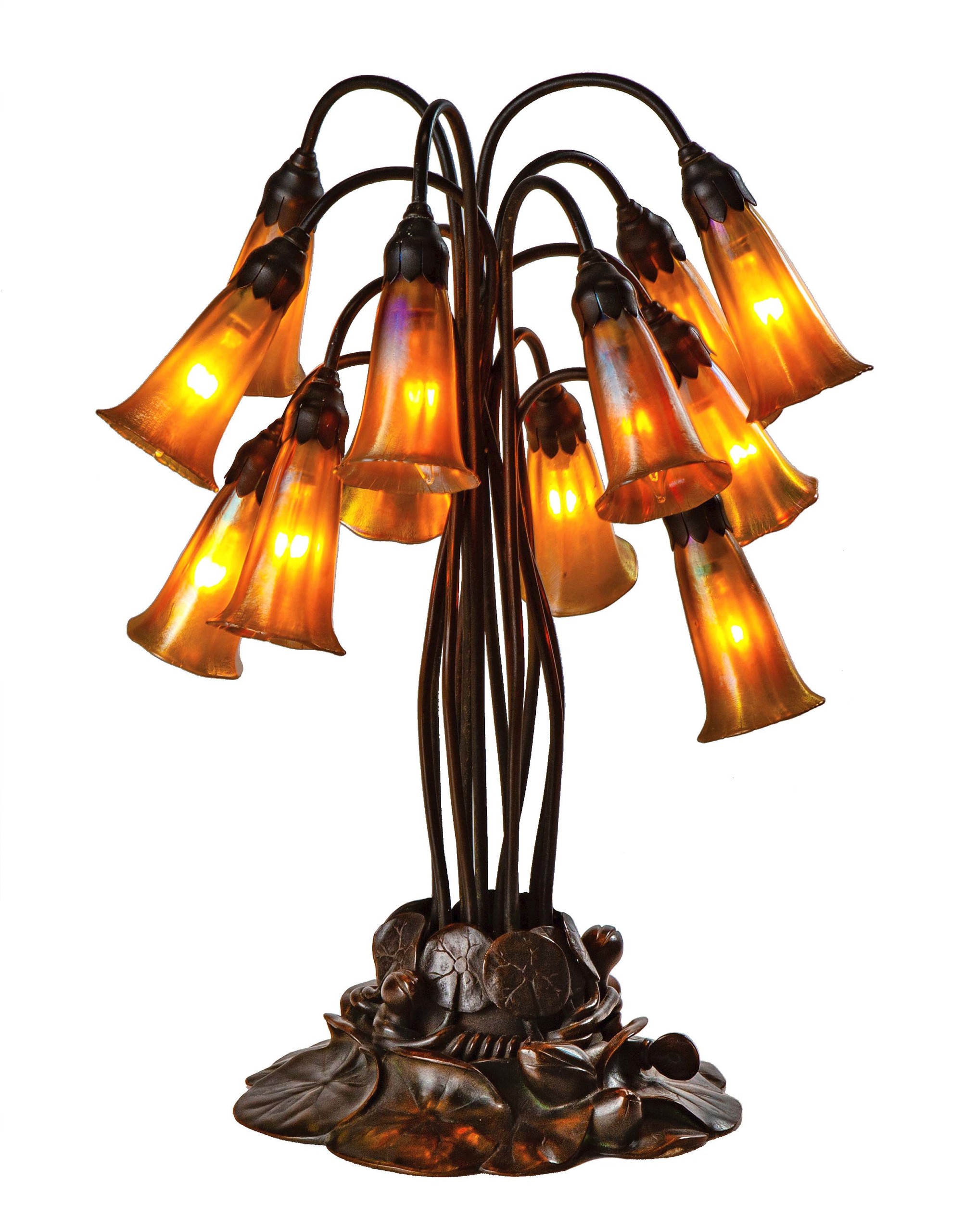
This Tiffany Studios 12-light Lily lamp, circa 1905, Favrile glass and patinated bronze, 20 inches high, brought $52,800 ($20/30,000).
Another six-digit finish was that of a Duffner & Kimberly leaded glass Dragon lamp. This Dragon lamp was just one of four known examples and, according to the auction catalog, it appeared in Duffner & Kimberly’s 1906 catalog as “Antique No. 521.” The mosaic glass shade depicted a green, red and yellow dragon with red eyes swirling around the shade’s blue background. At $150,000, the Dragon lamp was the highest-achieving lot from the May collection.
Also from May’s collection was a Handel floor lamp with a Peacock shade. The glass shade of the early Twentieth Century lamp had enameled and acid cutback details illustrating a peacock among a floral background. In “excellent” condition, the light was bid well beyond its $15,000 estimate to ultimately sell for $87,000.
With pink flowers against a vibrant blue background, a Bigelow, Kennard & Co., Cherry Blossom chandelier with three smaller satellites made $48,000. A note in the auction catalog read, “Special order, only one known example,” and this special leaded glass chandelier from May’s collection was made in Boston circa 1910.
Other notable glass works from the May collection included a pair of early Twentieth Century American school leaded glass windows depicting “Sunrise” and “Sunset” scenes, which were cased and sold together for $60,000, and a hand-blown Tiffany Studios Paperweight vase. The circa 1905 Favrile glass vase was inscribed “L.C.T. – Y5852” on the underside and it was bid to $48,000.
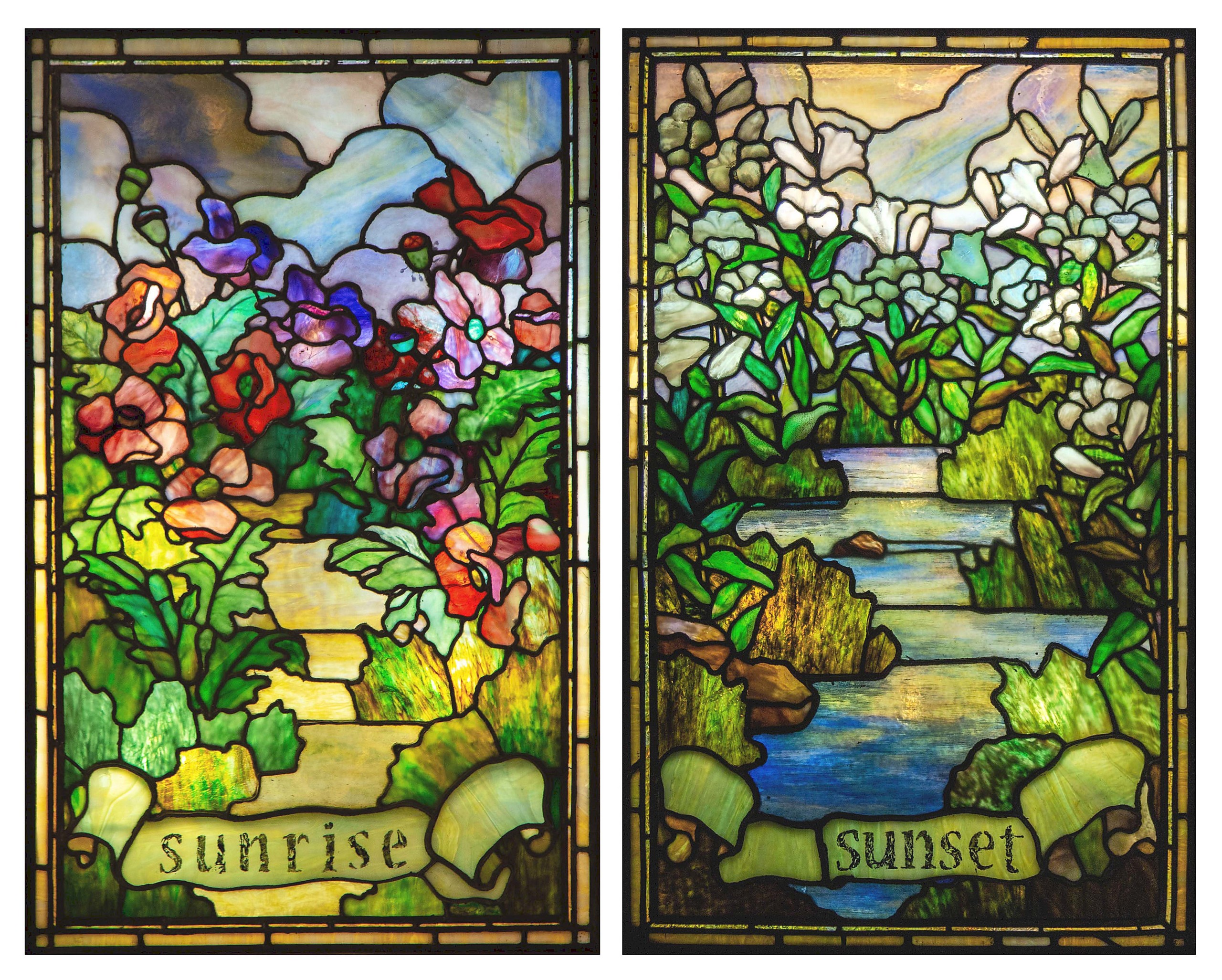
These early Twentieth Century American school leaded glass windows depicting “Sunrise” and “Sunset” sold together for $60,000 — well above their $5/8,000 estimate range; each cased window measured 30 by 25 inches.
From another important American collection was a Tiffany Studios jardiniere in the Arrowheads design. The patinated bronze vessel was detailed with flowers and arrowheads molded around its body, which was set with green mosaic glass tiles. A similar example of this jardiniere was also illustrated in Duncan’s Tiffany Lamps and Metalware. This example, with its original metal liner, brought $60,000.
Aaron Harry Gorson was an American artist whose work tended to focus on waterfront industrial scenes, often depicted at nighttime. The example of his work featured in this auction was a nocturne scene of a Pittsburgh steel mill. The oil on canvas work was signed “A H Gorson” to the lower right and, on its reverse, it bore a label from Wunderly Brothers Fine Art, Pittsburgh, Penn. After departing from a Rochester, N.Y., collection, it was claimed in this sale for $62,400.
Achieving $58,800 was Afro Basaldella’s Untitled No. 16. The abstract piece, signed and dated “Afro 68,” was done in oil and mixed media on newspaper laid on canvas. It had provenance to the Catherine Viviano Gallery of New York City and a private Buffalo, N.Y., collection.
Prices include the buyer’s premium as reported by the auction house. Cottone’s next Fine Art and Antiques auction will be in November with a date to be announced. For information, www.cottoneauctions.com or 585-243-1000.

















